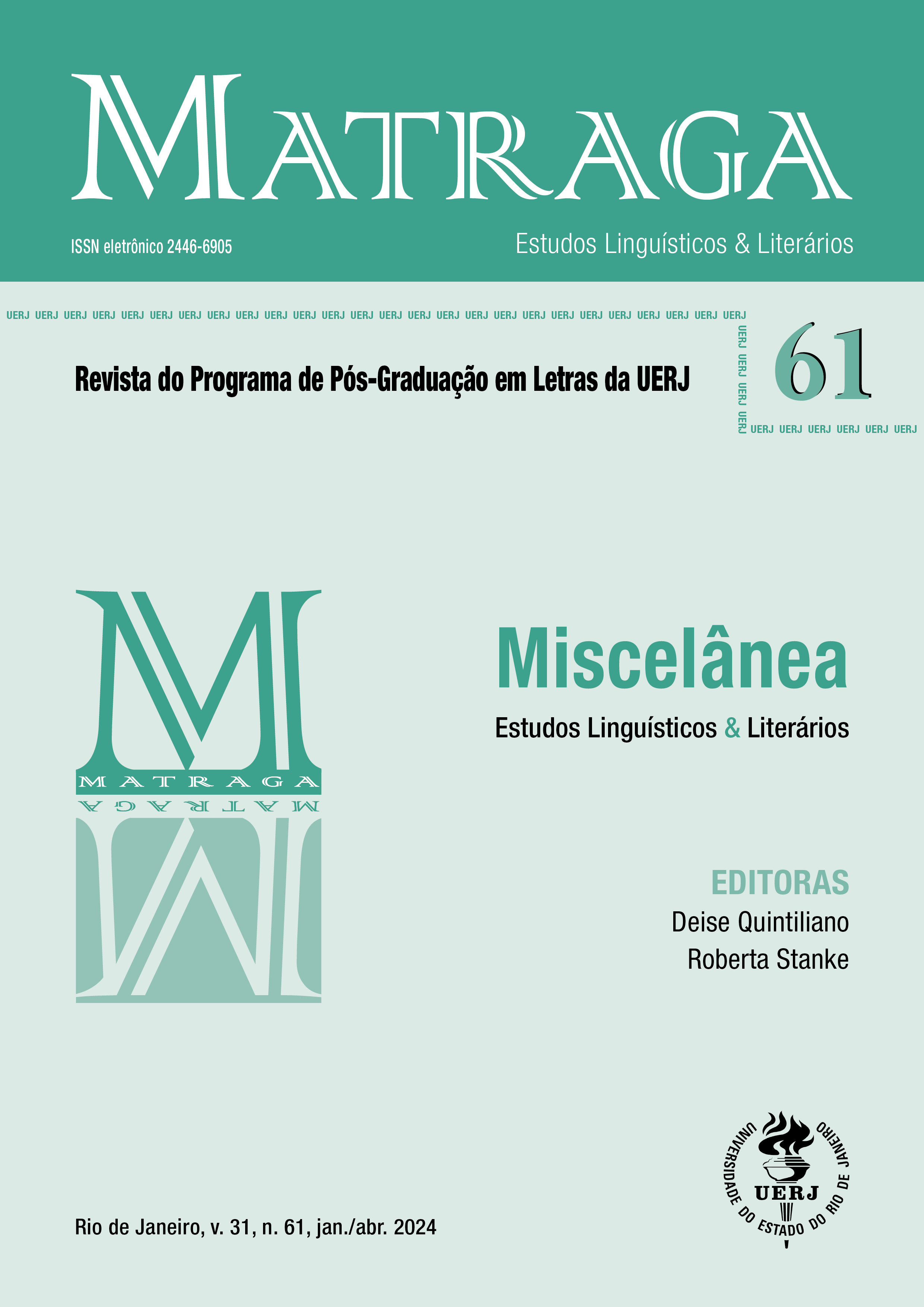Literature, music, atmospheres: Arthur Schnitzler´s Miss Else
DOI:
https://doi.org/10.12957/matraga.2024.77171Keywords:
Comparative literature, Arthur Schnitzler, Robert Schumann, Guy de Maupassant, Decadent atmospheresAbstract
In Fräulein Else (Miss Else), published in 1924, stream of thought and music composition intertwine, creating atmospheres that simultaneously express the historical turbulence of the Belle Époque Vienna and tumultuous affects that escape from it. This work written by the physician Arthur Schnitzler (whose father was Freud’s physician) consists of the inner monologue of a nineteen-year-old Viennese girl from a wealthy family on the brink of ruin. The young Else finds herself in a critical dilemma, as she needs to obtain a loan at any cost to save her indebted father. This is what she will attempt with a wealthy Sexagenarian, an art dealer, who promises to lend her the money under one condition: to see her naked. The novella is moved by affects such as eroticism, vital force, insurgent and suicidal impulses, love for her father, indignation, contempt, and hate. At the climax of the plot, fragments of Schumann’s Carnival blend with the text, when Else fulfills and breaks her promise, undressing herself for the hotel guests and then committing suicide with an overdose of Veronal, a drug commonly used at that time to treat insomnia and nervous excitability. The atmospheric climax is created by fragments of a music composition that rhythmizes Else’s final crisis, her stream of thought in the process of abolition. The outcome, death, undecidably articulates her destruction and a final flight: “Ich fliege... ich träume... ich schlafe... ich träu… träu – ich flie...”(I am flying... I am dreaming... I am sleeping... dream... dream... - fly...).
Downloads
References
CARPEAUX, Otto Maria. Uma nova história da música. Rio de Janeiro: Alhambra, 1977.
CARVALHO, Louise Ferreira e FERRAZ, Maria Cristina Franco. “Autômatos, duplos e delírios atmosféricos da subjetividade moderna: O homem da areia, de Hoffmann”. In: Revista Estação Literária, volume 27, série 1, Universidade Estadual de Londrina, 2021.
FOUCAULT, Michel. Histoire de la sexualité1 : la volontéde savoir. Paris : Gallimard, 1976.
JAMES, William. The Principles of Psychology. Chicago/Londres/Toronto: Encyclopaedia Britannica, 1952.
MAUPASSANT, Guy de. Mon coeur. Paris: Société d’Éditions Littéraires et Artistiques, 1902.
SCHNITZLER, Arthur. Fräulein Else. Frankfurt: Fischer Taschenbuch Verlag, 2011.
SCHNITZLER, Arthur. Senhorita Else. Tradução de Marijane Lisboa. Rio de Janeiro: Paz e Terra, 1985.
TAVARES, Pedro Heliodoro. Duas cartas de Sigmund Freud a Arthur Schnitzler: tradução e comentários. In: Revista ARTEEFILOSOFIA, número 23, Universidade Federal de Ouro Preto, dezembro de 2017.
WOOLF, Virginia. A room of one’s own. Londres: Penguin Classics, 2000.
Downloads
Published
How to Cite
Issue
Section
License

This work is licensed under a Creative Commons Attribution-NonCommercial 4.0 International License.
Authorization
Matraga – Scientific Journal of the Post-graduate Program in Arts and Humanities of UERJ is authorized to publish the article submitted here, if it is accepted for online publication. It is attested that the contribution is original, that it is not being submitted to another publisher for publication, and that this statement is the expression of truth.
The works published in Matraga's virtual space – Scientific Journal of the Post-graduate Program in Arts and Humanities of UERJ will be automatically transferred, and your copyright is reserved to Matraga. Its reproduction, in whole or in part, is conditional on the citation of the authors and the data of the publication.

Matraga uses license Creative Commons - Attribution-Non-Commercial 4.0 International.





